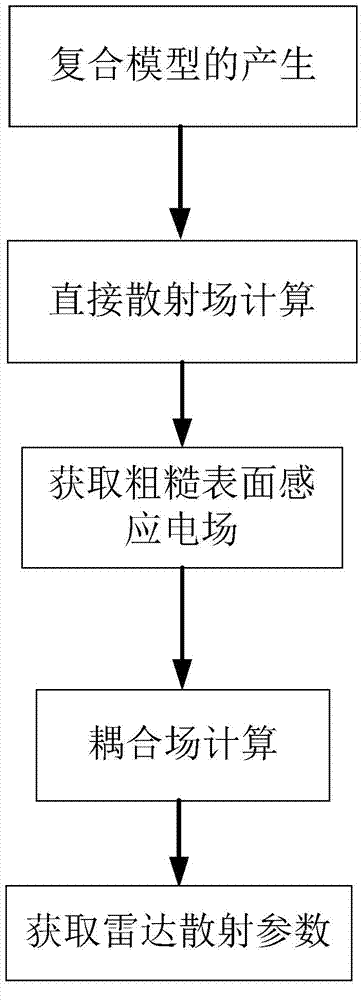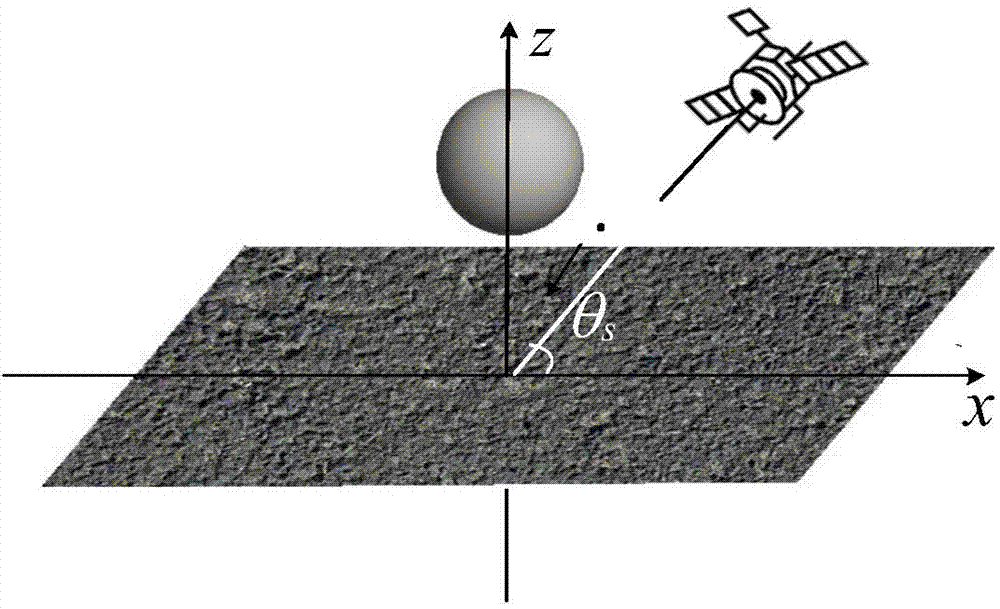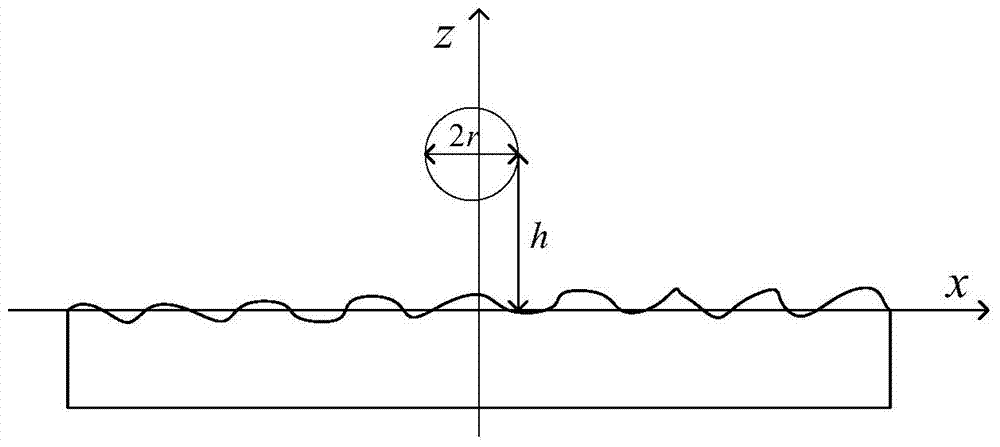Rough surface and target composite electromagnetic scattering simulation method based on reciprocity principle
A technology of composite electromagnetic and simulation methods, applied in the field of radar, can solve the problems of reducing the accuracy of simulation methods, limiting the versatility of simulation methods and the scope of engineering applications, and achieving the effects of avoiding artificial reflections, high versatility, and improving simulation efficiency
- Summary
- Abstract
- Description
- Claims
- Application Information
AI Technical Summary
Problems solved by technology
Method used
Image
Examples
Embodiment Construction
[0025] refer to figure 1 , the specific implementation steps of the present invention are as follows:
[0026] Step 1: Generate the composite model required for the simulation.
[0027] (1.1) Obtain the rough surface parameters of the simulated ground or sea surface and its power spectral density function S(k) through experiments, where the rough surface parameters include root mean square height δ and correlation length l. For different types of rough surfaces, the power spectral density function S(k) has different forms, for example: for the ground power spectral density function is S(k)=2πδexp(-k 2 / δ 2 ) / l 2 , for the sea surface power spectral density function S(k)=δ 2 l / [π(1+k 2 l 2 )], k is the space wave number;
[0028] (1.2) Generate N random numbers conforming to Gaussian distribution, where N is an even number greater than 0;
[0029] (1.3) Input the frequency f of the incident wave, with Δx=3.0×10 8 / (10f) is the sampling interval, take N discrete samplin...
PUM
 Login to View More
Login to View More Abstract
Description
Claims
Application Information
 Login to View More
Login to View More - R&D
- Intellectual Property
- Life Sciences
- Materials
- Tech Scout
- Unparalleled Data Quality
- Higher Quality Content
- 60% Fewer Hallucinations
Browse by: Latest US Patents, China's latest patents, Technical Efficacy Thesaurus, Application Domain, Technology Topic, Popular Technical Reports.
© 2025 PatSnap. All rights reserved.Legal|Privacy policy|Modern Slavery Act Transparency Statement|Sitemap|About US| Contact US: help@patsnap.com



